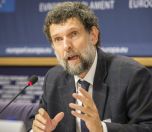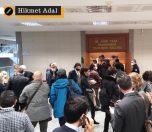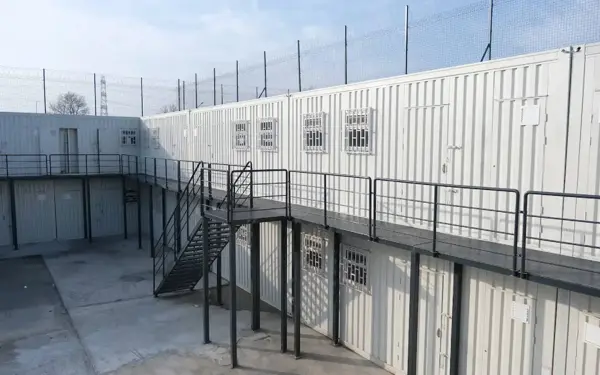Click to read the article in Turkish / Kurdish
The new indictment prepared against businessperson Osman Kavala, who has been remanded in custody for "obtaining state information that needs to remain confidential for political and military espionage purposes," has been accepted by the İstanbul 36th Heavy Penal Court.
The indictment also alleges that Prof. Henri Barkey, an academic and a former US diplomat, "plotted" the July 2016 coup attempt.
Kavala, who has been behind bars for 1,074 days, was previously charged with "attempting to change constitutional order and the government" in the trial over the 2013 Gezi Park protest and was eventually acquitted.
In the new indictment, it was alleged that his activities during the Gezi Park protests were "related to the FETÖ [Fethullahist Terrorist Organization]."
The indictment written by İstanbul Deputy Chief Public Prosecutor Hasan Yılmaz explains the "national security" term for two pages and says that intelligence activities have gained importance since World War 2.
The Arab Spring and the Gezi protests
States actively use intelligence to put economical, political, cultural, ideological and military pressure on other states and use non-governmental organizations for these purposes, according to the indictment.
"It is known that non-governmental organizations carry out social engineering with activities they do with foreign funds," says the indictment.
In the period starting from the 2010 Arab Spring, several countries' governments changed with foreign-supported people's movements and the Gezi Resistance was a reflection of these movements in Turkey, it further asserts.
The Gezi Resistance, the "corruption operations" on December 17 and 25, 2013, and the gendarmerie officers' search of a truck belonged to the National Intelligence Agency (MİT) were "acts aimed at making the legitimate government of the Republic of Turkey unfunctional," according to the chief prosecutor.
Soros and Kavala
Similar to the Gezi indictment, the new indictment alleges that Kavala's activities were funded by George Soros. The projects carried out by the Anadolu Kültür and Truth, Justice and Memory Studies Association were considered as "crimes."
The Open Society Foundation, "the most important extension of George Soros in Turkey," creates an environment for people to come together with its activities regarding "innocent" matters, such as women's rights, child abuse, violence against women, the assimilation of minorities, freedom of speech and environmental awareness, and then provokes them against "any government it wants," and attempts to start mass uprisings according to the indictment.
"It has been understood that Osman Kavala targeted our citizens of Kurdish and Armenian origin in his divisive activities," it says.
Covering the Gezi Park Resistance in six pages, Prosecutor Yılmaz alleged that Kavala's Anadolu Kültür association was "analyzing the social and cultural attributes of the society of Turkey for intelligence purposes and carrying out activities to provoke people into animosity and hatred, considering the people's differences of language, race, religion, sect, region and so on."
Prof. Barkey and the coup attempt
About Prof. Henri Barkey, the indictment says he "visited Turkey too often" during the Gezi Resistance than he did at other times.
Based on mobile phone signals, Kavala and Barkey came together in Turkey, says the indictment. It also alleges that they spoke over the phone despite the HTS records.
Also covering the 2016 coup attempt in 10 pages, Prosecutor Yılmaz said that it was not a "momentary action" but Turkey was being prepared for a coup environment.
The indictment notes that Barkey came to Turkey twice in 2015 and stayed in the country for 15 days in total.
Based on his remarks quoted by Financial Times on September 10, 2015, the chief prosecutor alleged that Barkey was in connection with the Kurdistan Workers' Party's (PKK) attacks on September 6 and 7, 2015.
Henri Barkey also came to Turkey on June 26, 2016, and left the country on July 3, twelve days before the coup attempt, notes the indictment.
"Barkey left Turkey on July 3, 2016, and returned in the morning on July 15, 2016, to follow the coup attempt," it says.
Kavala and Barkey's activities "intersected with the preparations for a coup attempt," both of them had information about the coup attempt beforehand and they established domestic and international connections for the coup attempt, the chief prosecutor further alleged.
The charges
The Prosecutor's Office charged Kavala and Barkey with "political and military espionage" upon Turkish Penal Code Article 328 and "attempt to change the constitutional order" upon Article 309.
The Constitutional Court was expected to announce its decision on Kavala's individual application that his arrest was unlawful on September 30 but it later postponed the examination of the application.
On the same day, the new indictment against Kavala was filed to the court and it was stated that it would also be included in the top court's report.
What do the laws say?Article 309 - Violation of the Constitution (1) Any person who attempts to abolish, replace or prevent the implementation of, through force and violence, the constitutional order of the republic of Turkey shall be sentenced to a penalty of aggravated life imprisonment. (2) Where any other offences are committed during the commission of this offence, an additional penalty for such offences shall be imposed according to the relevant provisions. (3) Legal entities shall be subject to security measures specific to them for the commission of offences defined in this article. Article 328 - Political or Military Espionage (1)A person who secures information that, due to its nature, must be kept confidential for reasons relating to the security or domestic or foreign political interests of the State, for the purpose of political or military espionage, shall be sentenced to a penalty of imprisonment for a term of fifteen to twenty years. (2) In the offense is committed: a) to serve the interest of a country at war with Turkey, or b) During wartime or such that it jeopardises the State's preparations for war or effectiveness in war or its military movements, the offender shall be sentenced to a penalty of aggravated life imprisonment. |
What happened?
Businessperson Osman Kavala, who was on his way back from Antep, was taken into custody at İstanbul Atatürk Airport on October 18, 2017.
On November 1, 2017, it was announced that Kavala was arrested on charges of "attempting to change the Constitutional order and to overthrow the government." In the official document referring him to court with a request of arrest, it was alleged that he was the head and financier of Gezi.
The sixth and final hearing of the lawsuit filed into Gezi resistance was held at the İstanbul 30th Heavy Penal Court in Silivri on February 18, 2020.
Announcing its ruling after the statements of defendants and their attorneys, the court board has ruled that Osman Kavala, Mücella Yapıcı, Can Atalay, Tayfun Kahraman, Ali Hakan Altınay, Yiğit Aksakoğlu, Yiğit Ali Ekmekçi, Çiğdem Mater Utku and Mine Özerden shall be acquitted as "there was no concrete and material evidence as to the committal of the offenses charged." The court has also ruled that businessperson and rights defender Osman Kavala, the only arrested defendant of the case, shall be released.
Osman Kavala was the only arrested defendant in the 16-defendant Gezi Trial, which started on June 24, 2019. Having been acquitted in this trial, Kavala was arrested again, this time on the charge of "political or military espionage." Kavala is still held in Silivri Prison in İstanbul.
Announcing its ruling on Kavala on December 10, 2019, the ECtHR concluded that his rights were violated by his imprisonment.
The ECtHR concluded that the European Convention on Human Rights was violated on the grounds that Kavala was arrested without any reasonable suspicion and with political motives and that the Constitutional Court did not examine his application within a reasonable period of time.
This ruling became final on May 12, 2020. While this ruling has not yet been put into effect, the Committee of Ministers of the Council of Europe made a call to Turkey about the final ruling of the ECtHR and urged Turkey to implement the ECtHR's ruling of right violation and to release him.
(HA/VK)






sa.jpg)
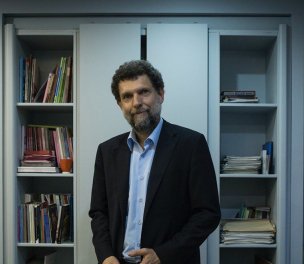

-132.jpg)


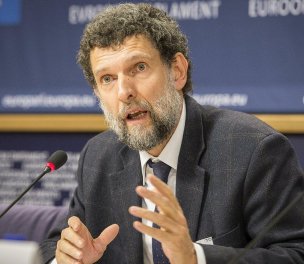
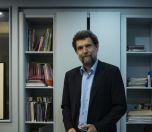
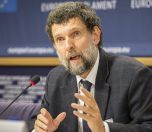
-132.jpg)
